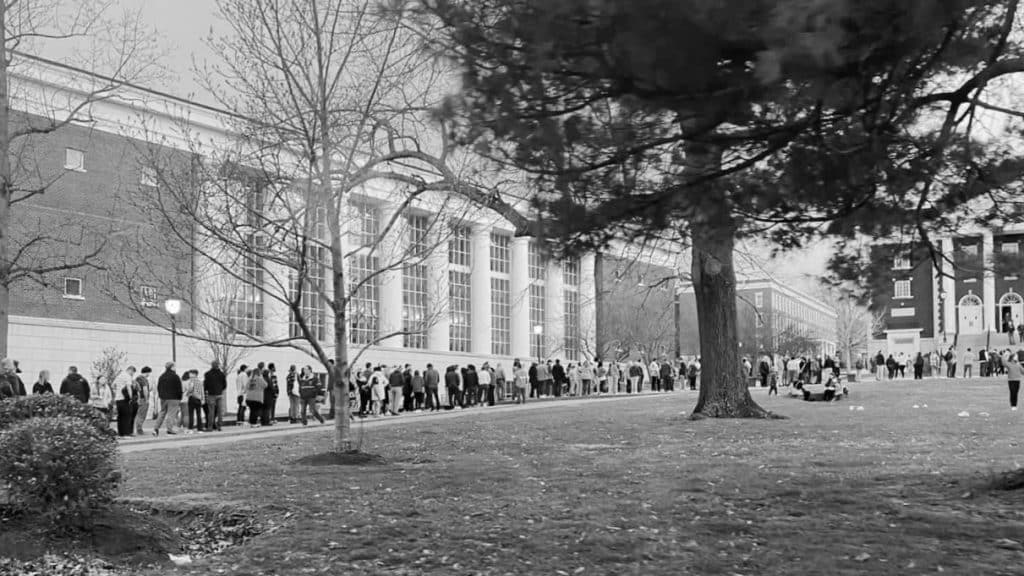By Dr. Chris Bounds Chair of the Department of Christian Studies and Philosophy
Because of space limitations, I can’t discuss every issue raised by Matthew Pertz’s editorial, “Stop Selectively Prosecuting Sinners.” However, for the sake of discussion he seeks, I will address three points ofapparent misunderstanding.
First, he asserts that Asbury believes that God views all sin equally. I will admit this idea is held by many evangelical churches, but it exists only as “folk theology,” a belief uncritically held by laity and preachers. In stark contrast, historic Christianity has taught consistently that some sins are worse than others in God’s eyes and we as Christians need to be mindful of them. Major theologians and doctrinal statements from Roman Catholic, Eastern Orthodox, Reformed, Lutheran, Anglican, Anabaptist, Wesleyan, Baptist, Pentecostal and other traditions have clearly recognized it as sound biblical and theological teaching. Asbury University follows this consensus as well. To see a representation of historic Christian teaching on the issue, see Questions 150 and 151 in the Reformed/Presbyterian’s Westminster Larger Catechism.
Christian consensus exists because of the clarity and degree to which the Bible teaches that there are greater and lesser sins. Perhaps, there are only three passages of Scripture that might “appear” to suggest otherwise: Matthew 5:21-28; Romans 6:23 and James 2:10. These verses however when properly understood in literary and social context bear witness to distinctions in the seriousness of sin.
Because Asbury doesn’t believe all sin is equal, it has a responsibility to identify which sins are most serious and spiritually dangerous to the Christian individual and community (Gal. 5:21; I John 5:16-17), which it has endeavored to do. Perhaps, the questions to be asked here are “How serious are sexual sins in the eyes of God? How serious are the sins listed in the lifestyle standards?”
Second, Mr. Pertz’s conclusion “might” lead a reader to believe that Christian communities like Asbury should not be involved in “judging” or “disciplining” another person because of personal sin. Because some sins are so great as to be spiritually dangerous to the individual and community, however, the historic church has always exercised discipline among its members. Paul instructs the Corinthian church to ex-communicate a young man sleeping with his step-mother (I Cor. 5:1-5), while “grumblers” in the community are only given a warning (9:24-10:13).
More specifically, Jesus gave the “power of the keys” to the Christian community by which it practices discipline among its members (Matt. 16:13-20; 18:15-20; John 20:19-23). Discipline is so essential to the life of the Christian community; it has been seen as a non-negotiable mark of the church. Without it, a Christian community ceases to be Christian (See Thomas Oden’s discussion of this issue in Classic Christianity, pp. 718-20, and his citations of historic Protestant discussions on the subject). The purpose of discipline is always to be redemptive and not punitive. It is to be a means of grace to bring Christians into greater conformity with Christ.
Because Asbury is a Christian community, it must exercise discipline and does so. Perhaps, the questions to be asked here are “How should Asbury practice redemptive discipline in regard to greater and lesser sins? How do we practice accountability that leads to greater conformity to Christ?”
Third, Mr. Pertz seems to accept the practice of promiscuity, bisexuality, and homosexuality as sin. It just isn’t any different or worse than other sins from his perspective. The problem before Asbury, however, is much deeper and serious; Asbury is being called to deny these are even sins at all. The LGBTQ community and LGBTQ Christians are demanding Asbury recognize their sexual practice as ordained by God and renounce its understanding of Scripture teaching. Asbury can’t do this.
In the end, I believe we must engage the issues raised by Mr. Pertz’s editorial and the larger issue of how we embody holy-love to those in our community struggling with major sin and to those in the LGBTQ community. To begin to do so in productive ways, we must correct some of the misunderstandings found in this editorial and among many Christians. It is healthy for a Christian community to engage in on-going critical reflection on its practice of redemptive discipline.









